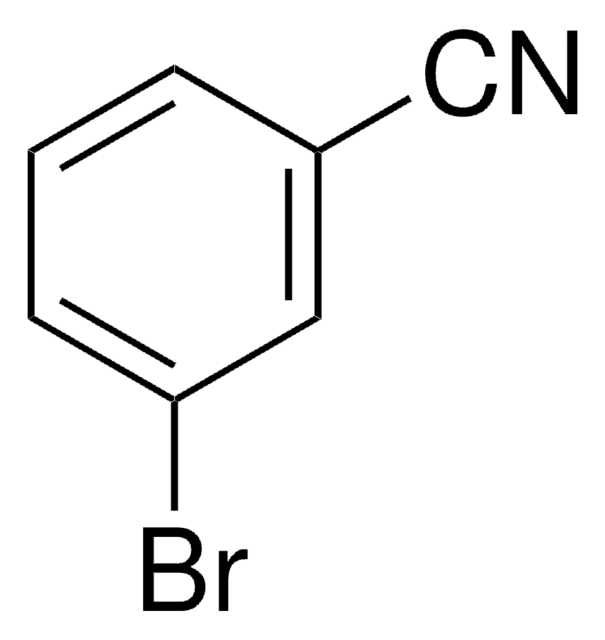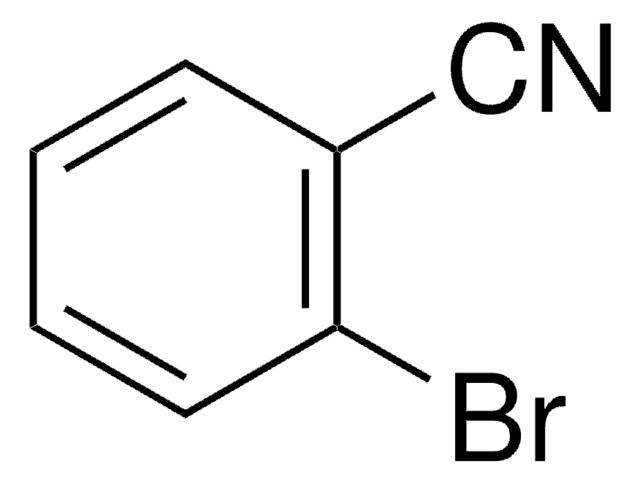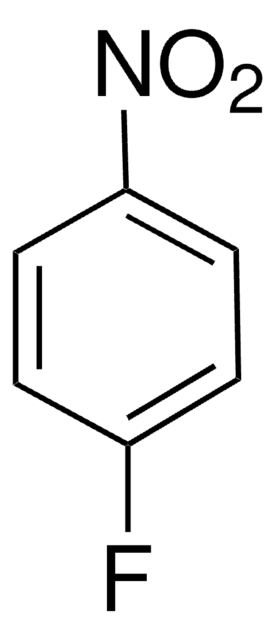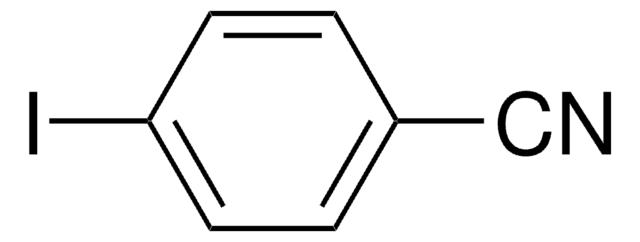139416
4-Fluorobenzonitrile
99%
Synonym(s):
1-Cyano-4-fluorobenzene, 4-Cyanofluorobenzene, 4-Fluorobenzonitrile, 4-Fluorocyanobenzene, Para-fluorobenzonitrile, p-Cyanofluorobenzene, p-Fluorobenzonitrile, p-Fluorophenyl cyanide
About This Item
Recommended Products
Quality Level
Assay
99%
form
solid
bp
188 °C/750 mmHg (lit.)
mp
32-34 °C (lit.)
functional group
fluoro
nitrile
SMILES string
Fc1ccc(cc1)C#N
InChI
1S/C7H4FN/c8-7-3-1-6(5-9)2-4-7/h1-4H
InChI key
AEKVBBNGWBBYLL-UHFFFAOYSA-N
Looking for similar products? Visit Product Comparison Guide
General description
Signal Word
Danger
Hazard Statements
Precautionary Statements
Hazard Classifications
Acute Tox. 4 Dermal - Acute Tox. 4 Inhalation - Acute Tox. 4 Oral - Flam. Sol. 1
Storage Class Code
4.1B - Flammable solid hazardous materials
WGK
WGK 3
Flash Point(F)
149.0 °F - closed cup
Flash Point(C)
65 °C - closed cup
Personal Protective Equipment
Choose from one of the most recent versions:
Already Own This Product?
Find documentation for the products that you have recently purchased in the Document Library.
Customers Also Viewed
Our team of scientists has experience in all areas of research including Life Science, Material Science, Chemical Synthesis, Chromatography, Analytical and many others.
Contact Technical Service













